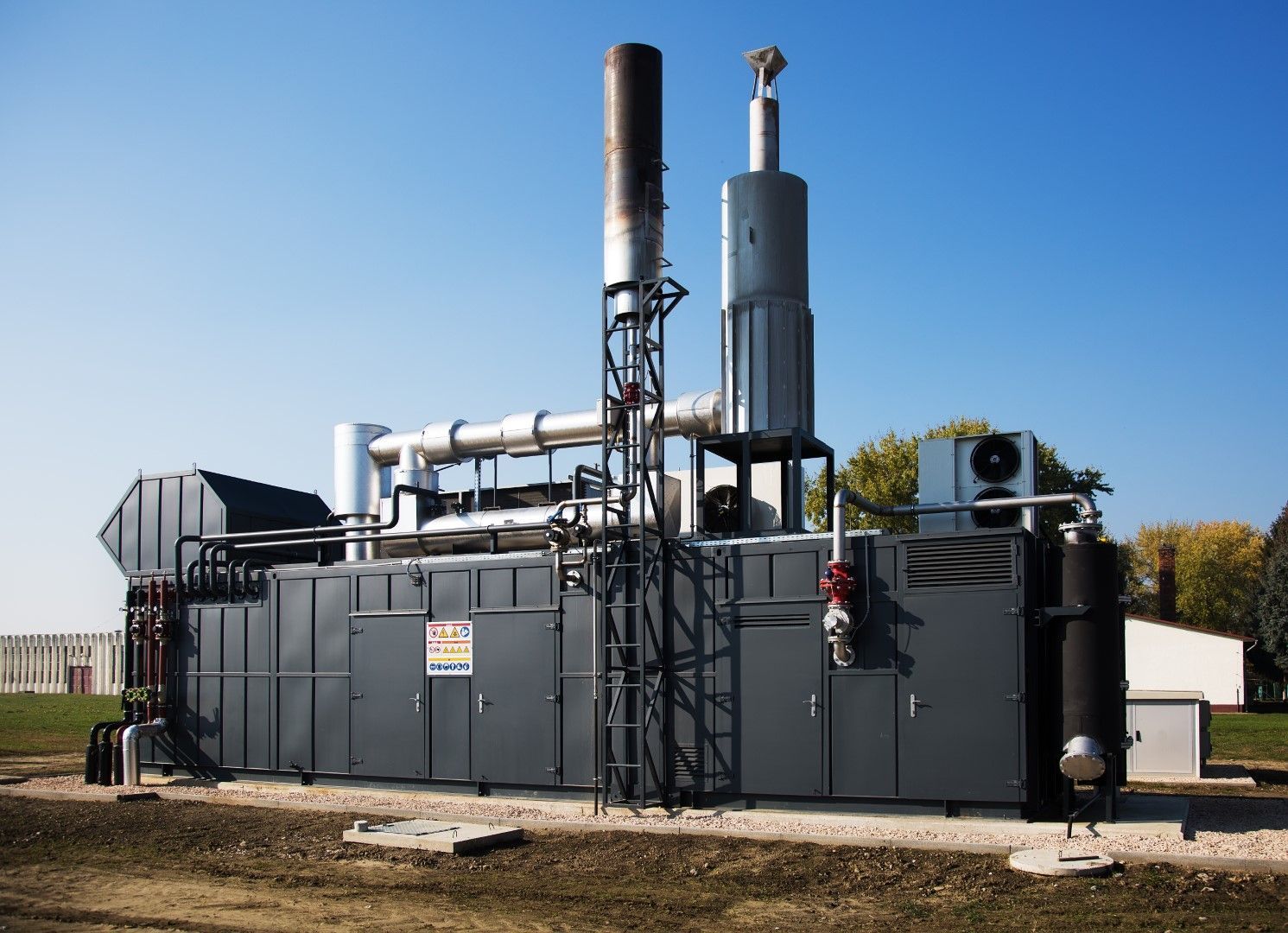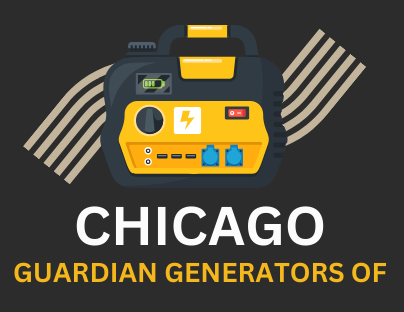Propane Generators in Chicago IL
Propane generators are a type of backup power source that runs on propane gas. They convert the energy from propane into electrical power, which can be used to keep essential appliances and systems running during a power outage. The operation of a propane generator involves burning propane in an engine, which then drives an alternator to produce electricity. This electricity is then distributed to various outlets in your home or business, ensuring a continuous power supply when the main grid fails.
Installation Requirements
Installing a propane generator requires careful planning and adherence to local codes and regulations. First, you need a suitable location for the generator, ideally on a level, concrete surface away from your home to avoid carbon monoxide buildup. The installation area should also have proper ventilation. Additionally, you'll need to connect the generator to a propane supply, which involves setting up a fuel line and ensuring there is adequate propane storage. Professional installation is recommended to ensure that all components are correctly set up and comply with safety standards.
Regular Inspections and Servicing
To ensure your propane generator operates efficiently and reliably, regular inspections and servicing are crucial. This includes checking the oil levels, fuel filters, and battery condition. Routine maintenance also involves inspecting the air filters and spark plugs and ensuring that all connections and components are secure. Scheduling annual service checks with a qualified technician can help identify potential issues before they become serious problems, ensuring your generator is always ready when needed.
Handling Propane Safely
Proper handling of propane is essential for safety. Propane should be stored in a well-ventilated area away from heat sources and open flames. Always use approved propane containers and ensure they are in good condition. During refueling, avoid spills by carefully following the manufacturer’s instructions. Additionally, keep propane cylinders upright and ensure that all connections are tight and leak-free. Regularly check for leaks by applying soapy water to connections and looking for bubbles, which indicate a leak.
Sizing and Power Needs
Choosing the right size of propane generator is critical to meeting your power needs effectively. To determine the appropriate generator size, calculate the total wattage required for your essential appliances and systems. Consider the starting wattage of appliances, as some devices require more power to start than to run continuously. A professional can help you assess your power requirements and select a generator that provides sufficient capacity without overloading.

Performance Benefits
Propane generators offer several performance benefits. They are known for their clean-burning fuel, which results in fewer emissions compared to gasoline or diesel generators. This makes them a more environmentally friendly option. Propane also has a longer shelf life than gasoline, meaning it can be stored for extended periods without deteriorating. Additionally, propane generators are quieter and typically have lower maintenance needs due to the cleaner burn of propane.
Features and Specifications
Modern propane generators come with a range of features and specifications designed to enhance performance and convenience. Look for generators with automatic start capabilities, which ensure the unit powers up immediately during an outage. Many models also include remote monitoring systems, allowing you to check the status of your generator from anywhere. Features such as low-oil shutoff, overload protection, and fuel gauge are also important for ensuring reliable operation and safeguarding your equipment.
If you're considering a
propane generator in Chicago, IL, we’re here to help. Our team of experts can guide you through the selection, installation, and maintenance processes to ensure you get the best performance from your generator. Contact us today to discuss your needs and schedule a consultation. We look forward to assisting you with all your propane generator requirements and ensuring you have a reliable power backup solution.
Comparison of Propane Generators to Other Types of Generators

When choosing a generator, it's essential to understand the different types available and their unique benefits. Generators are crucial for providing backup power during outages and can be a reliable source of energy for various applications. Among the options available, propane generators have become increasingly popular. In this post, we'll compare propane generators to other common types, such as gasoline, diesel, and natural gas generators, to help you make an informed decision.
Fuel Source and Availability
Propane generators use propane gas, which is stored in tanks and is a clean-burning fuel. Propane is widely available and can be stored for long periods, making it a convenient option for extended outages.
In contrast, gasoline generators rely on gasoline, which can be volatile and has a shorter shelf life. Gasoline needs to be replenished more frequently, and its availability can fluctuate based on market conditions.
Diesel generators use diesel fuel, known for its high energy density and efficiency. Diesel is ideal for heavy-duty applications and long runtimes. However, diesel fuel can be expensive, and diesel generators often produce more noise and emissions compared to propane generators.
Natural gas generators operate on natural gas, which is delivered through pipelines. This makes them a consistent power source as long as the gas supply remains uninterrupted. However, if there's a gas supply issue or if you live in a remote area, natural gas might not be as accessible.
Performance and Efficiency
Propane generators are known for their reliable performance and efficiency. They start easily in cold weather, require less maintenance, and generally have a longer operational life compared to gasoline generators.
Propane also burns cleaner, reducing the buildup of carbon and keeping the engine running smoothly. Gasoline generators are generally less efficient and may struggle with cold starts. They often require more frequent maintenance and can have a shorter lifespan due to the accumulation of carbon deposits in the engine.
Diesel generators are highly efficient and well-suited for heavy-duty use. They provide consistent power output and are durable, making them ideal for industrial and commercial applications. However, they can be noisy and may require more maintenance to keep running efficiently.
Natural gas generators offer reliable performance and can be more cost-effective in the long run if natural gas is readily available. They typically have lower maintenance requirements and provide a steady power supply.
Noise Level and Portability
Propane generators are typically quieter than gasoline and diesel generators, making them a better choice for residential areas where noise levels are a concern. They also tend to be more portable, as propane tanks can be refilled or replaced easily.
Gasoline generators can be noisy, which might be a drawback if you need to use the generator in a noise-sensitive environment. They are generally more portable than diesel generators but less so compared to propane generators.
Diesel generators are the loudest of the options discussed and are often used in industrial or commercial settings where noise is less of an issue. They are also less portable due to their size and weight.
Natural gas generators can be quieter than diesel and gasoline generators but may require a fixed installation, reducing their portability.
Environmental Impact
Propane is a clean-burning fuel that produces fewer emissions compared to gasoline and diesel. It generates lower levels of carbon monoxide, nitrogen oxides, and particulate matter. This makes propane generators a more environmentally friendly option, especially in areas with strict emissions regulations.
Gasoline generators emit more pollutants, including carbon monoxide and hydrocarbons, which can be harmful to the environment and human health. Diesel generators, while efficient, produce higher levels of nitrogen oxides and particulate matter, contributing to air pollution.
Natural gas generators also offer lower emissions compared to gasoline and diesel, but their environmental benefits can vary depending on the source of the natural gas and the efficiency of the generator.
Cost and Maintenance
Propane generators are often more cost-effective to maintain compared to gasoline and diesel generators. Propane is generally less expensive than gasoline and diesel on a per-unit basis, and propane generators have fewer moving parts that require maintenance.
Gasoline generators can be cheaper upfront, but the cost of gasoline and the need for frequent maintenance can add up over time. Diesel generators tend to have higher initial costs and maintenance expenses but offer long-term reliability and efficiency.
Natural gas generators have varying costs depending on the setup and availability of natural gas. They may have higher installation costs due to the need for a natural gas connection but can be economical in areas with a stable gas supply.
Choosing the right generator depends on your specific needs and preferences. Whether you prioritize fuel efficiency, environmental impact, or cost, understanding the differences between propane generators and other types can help you make an informed decision.
If you have questions or need assistance in selecting the best generator for your needs, feel free to reach out to us. Our team is here to provide expert advice and help you find the perfect solution. Contact us today to learn more about our generator options and services.
Applications of Propane Generators
Propane generators have gained popularity for their efficiency, versatility, and eco-friendly benefits. Unlike traditional gasoline generators, propane generators run on clean-burning propane gas, making them a preferred choice for many applications. Whether for residential, commercial, or recreational use, propane generators offer a reliable power solution with several distinct advantages. This article will explore the various applications of propane generators and why they might be the right choice for your needs.
Residential Use
In homes, propane generators are increasingly favored for backup power during outages. They ensure that essential appliances like refrigerators, heating systems, and lights remain operational when the power goes out. Propane generators are also quieter compared to gasoline models, making them less disruptive to daily life. Additionally, propane’s clean-burning nature means that these generators contribute to a healthier home environment by reducing emissions.
Commercial Use
Businesses often rely on propane generators for continuous power supply in various scenarios. Restaurants, retail stores, and offices use them to maintain operations during power interruptions, preventing revenue loss and service disruptions. Propane generators can also support essential systems such as security and HVAC systems, ensuring a safe and comfortable environment for both employees and customers.
Recreational Use
For outdoor enthusiasts, propane generators offer a reliable source of power for camping trips, RVs, and other recreational activities. They are convenient for powering lights, small appliances, and electronic devices while enjoying nature. Propane’s portability and ease of storage make these generators ideal for travel and outdoor adventures. Unlike gasoline generators, propane generators do not require long-term storage solutions or the risk of fuel spillage.
Emergency Situations
In emergencies, propane generators provide crucial power for medical equipment, emergency lighting, and communication devices. They are valuable in scenarios such as natural disasters or severe weather events where maintaining power can be a matter of safety and survival. Their reliability in extreme conditions makes them a trusted choice for emergency preparedness.
Construction Sites
Construction sites often require temporary power solutions for tools, lighting, and equipment. Propane generators can handle the heavy power demands of construction machinery and provide a stable power source where electrical infrastructure is not yet established. They offer the advantage of cleaner operation, reducing the environmental impact on job sites.
Special Events
For events like outdoor weddings, festivals, and fairs, propane generators are used to power sound systems, lighting, and food vendors. Their quiet operation ensures that they do not interfere with the event’s atmosphere, and their clean-burning fuel means less environmental impact. Propane generators can be quickly set up and taken down, making them ideal for temporary event needs.
Propane generators offer a versatile and efficient power solution for a variety of applications. Whether you need reliable backup power at home, support for your business, or a dependable source for recreational use, propane generators provide a clean and effective solution. If you’re interested in learning more about how propane generators can meet your needs or want to discuss your specific requirements, contact us today. Our team is here to help you find the perfect generator for your application and ensure you have the power you need when you need it most.
